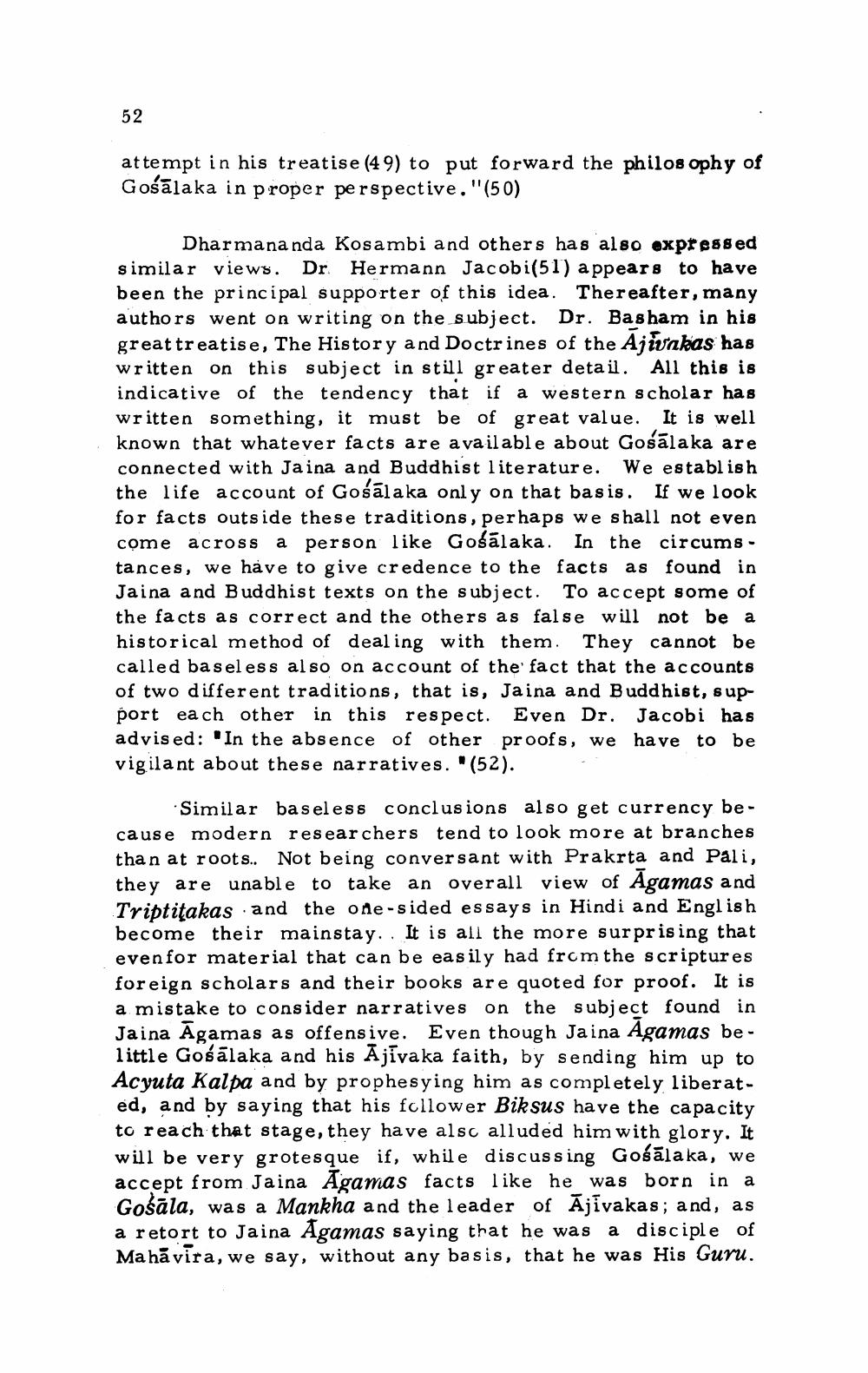________________
52
attempt in his treatise (49) to put forward the philosophy of Gosālaka in proper perspective. "(50)
Dharmana nda Kosambi and others has also expressed similar views. Dr. Hermann Jacobi(51) appears to have been the principal supporter of this idea. Thereafter, many authors went on writing on the subject. Dr. Basham in his great treatise, The History and Doctrines of the Ajivakas has written on this subject in still greater detail. All this is indicative of the tendency that if a western scholar has written something, it must be of great value. It is well known that whatever facts are available about Gosālaka are connected with Ja ina and Buddhist literature. We establish the life account of Gosālaka only on that basis. If we look for facts outside these traditions, perhaps we shall not even come across a person like Gosālaka. In the circums - tances, we have to give credence to the facts as found in Jaina and Buddhist texts on the subject. To accept some of the facts as correct and the others as false will not be a historical method of dealing with them. They cannot be called baseless also on account of the fact that the accounts of two different traditions, that is, Jaina and Buddhist, support each other in this respect. Even Dr. Jacobi has advised: 'In the absence of other proofs, we have to be vigilant about these narratives. "(52).
Similar baseless conclusions also get currency because modern researchers tend to look more at branches than at roots. Not being conversant with Prakrta and Pali, they are unable to take an overall view of Agamas and Triptitakas and the one-sided essays in Hindi and English become their mainstay. . It is all the more surprising that even for material that can be easily had from the scriptures foreign scholars and their books are quoted for proof. It is a mistake to consider narratives on the subject found in Jaina Āgamas as offensive. Even though Jaina Agamas belittle Gosālaka and his Ajiya ka faith, by sending him up to Acyuta Kalpa and by prophesying him as completely liberated, and by saying that his follower Bik sus have the capacity to reach that stage, they have also alluded him with glory. It will be very grotesque if, while discussing Gośāla ka, we accept from Jaina Agamas facts like he was born in a Gośāla, was a Mankha and the leader of Ajivakas; and, as a retort to Jaina Agamas saying that he was a disciple of Mahavira, we say, without any basis, that he was His Guru.




